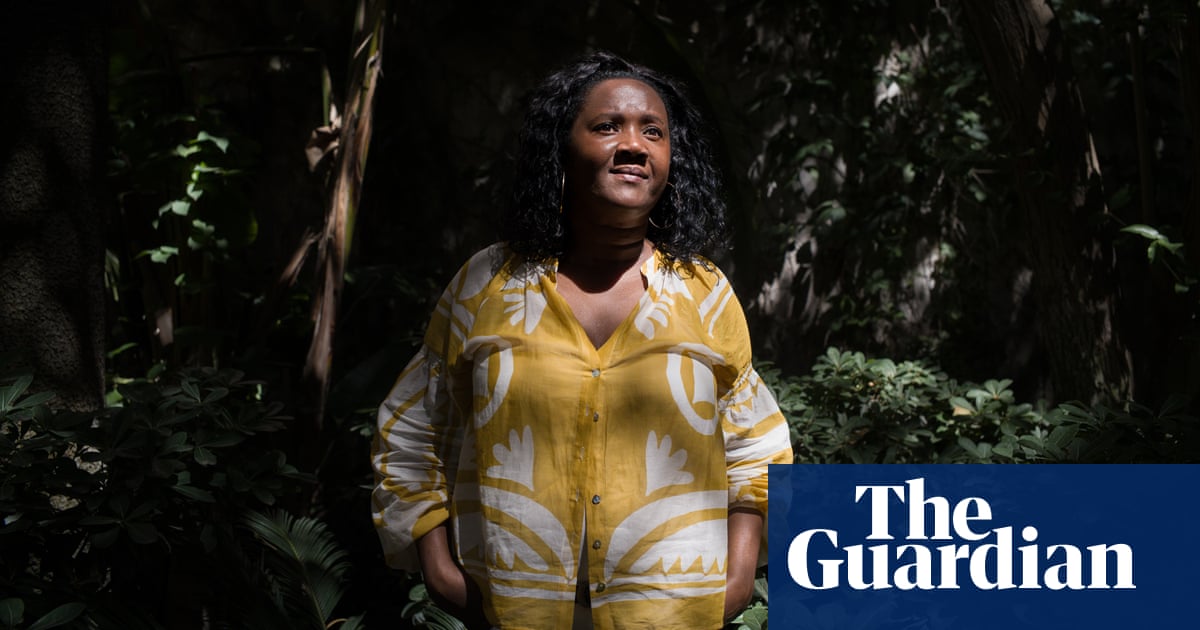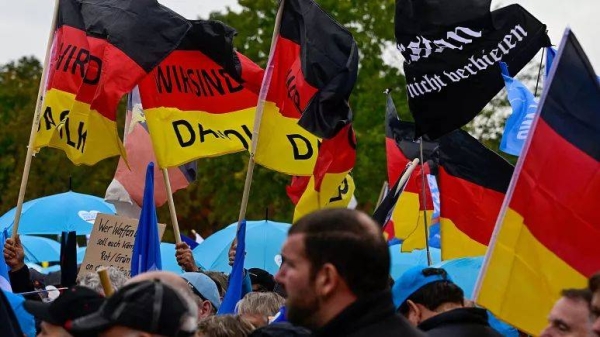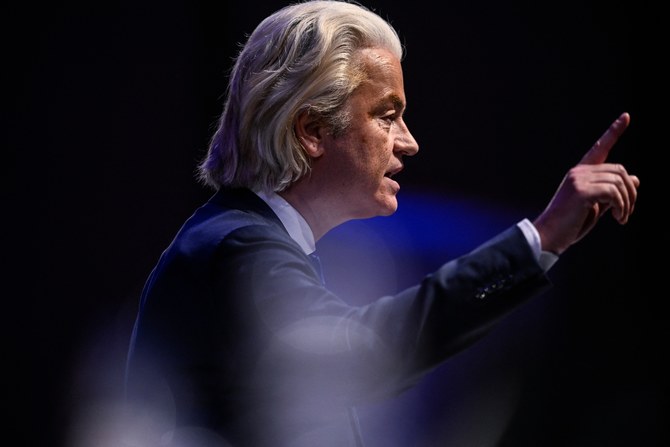
A government report found that four attacks have been carried out in Britain over the past five years “by lone actors motivated to varying degrees by extreme right-wing ideologies”
The emergence of the neo-Nazi group National Action in 2014, and similar fringe outfits like Generation Identity, has helped forge a new, younger pool of extremists
LONDON: Stung by an attack on Muslims in London a year ago, Britain is facing a growing threat from far-right extremists fueled by online hate speech, forcing the authorities to react.
In a country hit by five attacks in the space of six months in 2017 that killed 36 people, “the biggest threat is from Islamist terrorism,” Home Secretary Sajid Javid said earlier this month.
But “extreme right-wing terrorism is also an increasing threat,” the interior minister added as he unveiled a new counter-terror strategy.
A government report found that four attacks have been carried out in Britain over the past five years “by lone actors motivated to varying degrees by extreme right-wing ideologies.”
Among them was Darren Osborne, a 48-year-old from Cardiff, who a year ago on Tuesday drove his rented van into a group of Muslim worshippers near Finsbury Park Mosque in north London, killing one man and injuring 12 others.
The father-of-four’s radicalization ramped up in a matter of weeks, fed by compulsive reading of hate material online.
In February, Mark Rowley, the then head of counter-terrorism policing, said that four extreme right-wing plots were foiled last year and described the trend as “worrying.”
Matthew Henman, from the Jane’s Terrorism and Insurgency Center database, told AFP: “There is a clear increase in both the tempo of attacks conducted by right-wing extremists and in the seriousness, lethality, of such violence.”
In recent decades, extreme right-wing activity in Britain had been confined to small, established groups with an older membership, which promoted anti-immigration and white supremacist views but presented a low risk to national security.
But the emergence of the neo-Nazi group National Action in 2014, and similar fringe outfits like Generation Identity, has helped forge a new, younger pool of extremists, according to the “2018 State of Hate” report by the anti-racism organization Hope Not Hate.
The report’s “online hate” section cited prominent British figures among those with the biggest reach on social media.
They included Stephen Lennon — known as Tommy Robinson — founder of the English Defense League, which he left in 2013.
They also included Paul Joseph Watson, whose videos have been viewed hundreds of thousands of times, and commentator Katie Hopkins, who in 2015 compared migrants to “cockroaches.”
“The authorities are failing to appreciate or deal with this growing far-right online threat and anti-Muslim hatred in general,” Hope Not Hate’s report concluded.
The Muslim Council of Britain, a national representative umbrella body, has also denounced an Islamophobic climate, blaming elements of the governing Conservative Party.
However, Henman said he had seen “encouraging signals” from the government and security services, such as disrupting plots and banning National Action in December 2016 after the assassination of opposition Labour MP Jo Cox by a neo-Nazi sympathizer.
The killing, which shocked Britain, was carried out in the build-up to the June 2016 referendum on Brexit.
However, National Action continues to operate in the shadows.
On Tuesday, Jack Renshaw, 23, one of its alleged members, pleaded guilty in court in London to planning to assassinate another Labour lawmaker, Rosie Cooper.
“As with the fight against militant Islamism, these policies treat the symptoms of right-wing extremism and not the cause,” said Henman, calling for a more “comprehensive approach.”
He added the spike in far-right activity was “not occurring in a bubble.”
“There is a broader role played by prominent elements in the right-wing media and elements of hard-line government policy that have help foster and create an environment in which right-wing extremism can take root and spread,” Henman said.
The government has pledged to act upstream, identifying young people sensitive to propaganda and developing “alternative speeches” to those of extremists — whether they come from radical Islam or the extreme right.
As Javid noted in his speech, the two camps are “more similar than they might like to think.”
“They both exploit grievances, distort the truth, and undermine the values that hold us together,” he said.












